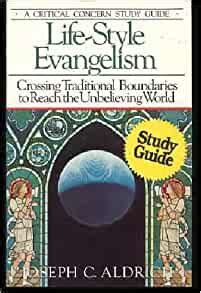A Quote by Francis Schaeffer
The purpose of apologetics is not just to win an argument or a discussion, but that people with whom we are in contact may become Christians and then live under the Lordship of Christ in the whole spectrum of life.
Related Quotes
The Lordship of Jesus Christ is not quite forgotten among Christians, but it has been relegated to the hymnal where all responsibility toward it may be comfortably discharged in a glow of religious emotion. Or if it is taught as a theory in the classroom it is rarely applied to practical living. The idea that the Man Christ Jesus has absolute final authority over the whole church and over its members in every detail of their lives is simply not now accepted as true by the rank and file of evangelical Christians.
Your mission in life is to have a "why" to live for, to use your best qualities in the service of the kind of world in which you would like to live. That is your purpose. This is what life expects of you. And when you live according to your purpose, setting goals that support it, you may find the pieces of your life drawn together into a strong internal whole. Then, no matter how difficult life's experiences may prove to be, you can be able to endure and even prevail.
When Christians in free countries win a soul for Christ, the new believer may become a member of a quietly living church. But when those in captive nations win someone, we know that he may have to go to prison and that his children may become orphans. The joy of having brought someone to Christ is always mixed with this feeling that there is a price that must be paid.
Now I begin to be a disciple. I care for nothing, of visible or invisible things, so that I may but win Christ. Let fire and the cross, let the companies of wild beasts, let breaking of bones and tearing of limbs, let the grinding of the whole body, and all the malice of the devil, come upon me; be it so, only may I win Christ Jesus!
Let me make it quite clear that when Christians say the Christ-life is in them, they do not mean simply something mental or moral. When they speak of being "in Christ" or of Christ being "in them", this is not simply a way of saying that they are thinking about Christ or copying Him. They mean that Christ is actually operating through them; that the whole mass of Christians are the physical organism through which Christ acts--that we are His fingers and muscles, the cells of His body.
It was the ghost of rationality itself ... This is the ghost of normal everyday assumptions which declares that the ultimate purpose of life, which is to keep alive, is impossible, but that this is the ultimate purpose of life anyway, so that great minds struggle to cure diseases so that people may live longer, but only madmen ask why. One lives longer in order that he may live longer. There is no other purpose. That is what the ghost says.
Real people live with, you know, being Christians with cancer, Christians with AIDS, and Christians coming back home with limbs missing from war, and Christians being evicted, and Christians losing their homes. And if you don't paint that picture, too, then I think that you are misrepresenting what the faith really can look like.
The best argument for Christianity is Christians: their joy, their certainty, their completeness. But the strongest argument against Christianity is also Christians-when they are somber and joyless, when they are self-righteous and smug in complacent consecration, when they are narrow and repressive, then Christianity dies a thousand deaths.
If the purpose of life is just to live this life and then die, it's hard to answer the purpose of pain question; but if we can help people see from an eternal perspective - that all of this is working together to prepare us for something higher than we've ever imagined, more noble than we've ever dreamed - then we discover some hope that we can hold on to.






































